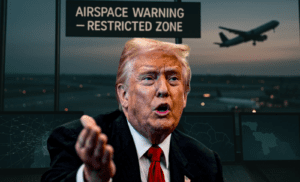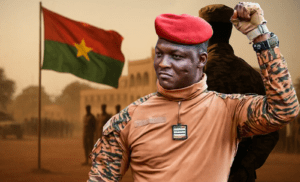As part of ongoing international efforts to mediate the Russia-Ukraine war, high-level peace took place earlier in the week in Saudi Arabia. These negotiations, part of a broader diplomatic initiative led by Riyadh, aim to explore potential compromises between Ukraine and Russia with the involvement of key global players.
U.S. Senator Marco Rubio has stated that Washington is particularly interested in understanding what concessions Ukraine may be willing to make in pursuit of a ceasefire. His remarks highlight a strategic shift in diplomatic discussions, where the focus is increasingly turning toward practical compromises rather than prolonged military engagement
Rubio’s Stance on Ukraine’s Concessions
Rubio has suggested that, for peace talks to progress meaningfully, Ukraine may need to consider ceding some of the territories currently occupied by Russian forces. While he acknowledged Ukraine’s resilience in defending its sovereignty, he also emphasized that a pragmatic approach may be necessary to prevent further devastation.
According to Rubio, the U.S. is not pushing Ukraine toward any specific outcome but is interested in understanding Kyiv’s position on potential compromises. “We need to hear from them what they think is realistic,” he stated, reinforcing the idea that diplomatic solutions must come from Ukraine itself rather than external pressure.
The Role of Saudi Arabia in Peace Efforts
Saudi Arabia has been positioning itself as a neutral mediator in the Russia-Ukraine conflict, hosting multiple rounds of peace talks that bring together key stakeholders. The kingdom first hosted negotiations in Jeddah in August 2023, and these discussions have continued with growing participation from countries such as the U.S., China, and European allies.
While Russia was not included in the initial talks, recent developments suggest increased international pressure to engage Moscow in direct negotiations. Saudi Arabia’s role in these talks underscores its ambitions as a regional power broker and a key player in global diplomacy.
Western Skepticism and the Roadblocks to Peace
Despite Rubio’s remarks, skepticism remains among Western diplomats regarding Russia’s willingness to make meaningful concessions. Critics argue that Russian President Vladimir Putin has shown little interest in negotiating in good faith, instead insisting on retaining occupied territories and opposing any Western-led peacekeeping initiatives.
Further complicating matters, Ukraine has repeatedly maintained that any peace agreement must include the full restoration of its territorial integrity. Ukrainian President Volodymyr Zelensky has stated that Kyiv is open to negotiations but will not accept a settlement that legitimizes Russian occupation. This fundamental disagreement remains a major hurdle in the Saudi-hosted peace efforts.
U.S. Military Support and Ceasefire Discussions
Alongside diplomatic negotiations, Washington has signaled a willingness to resume military aid and intelligence sharing with Ukraine. This decision follows Kyiv’s recent agreement to a proposed 30-day ceasefire with Russia, which is seen as a potential step toward broader peace negotiations.
The temporary truce, facilitated by international mediators, aims to create conditions for further discussions while allowing both sides to reassess their positions. However, analysts caution that without long-term commitments from Russia and Ukraine, the ceasefire could collapse, leading to a resumption of hostilities.

















